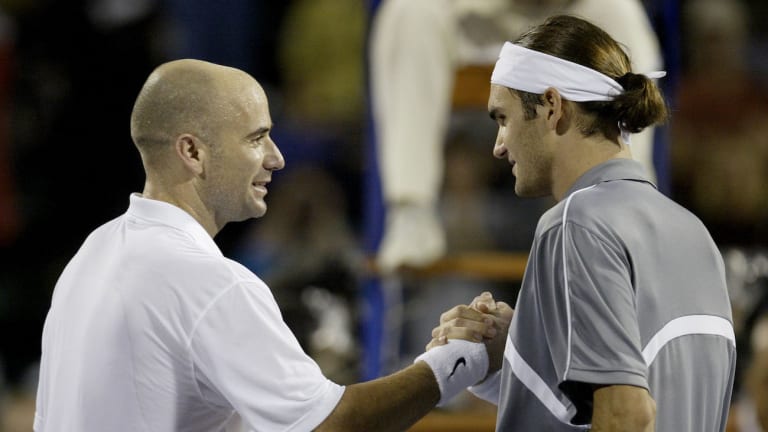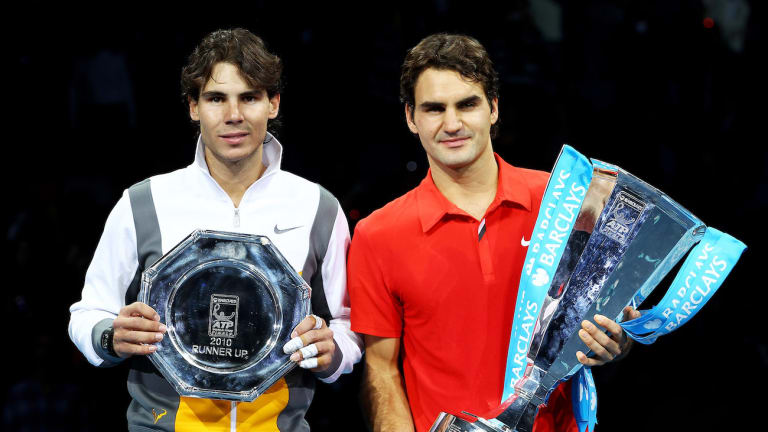Each week, Baseline will take a look at a player who has thrived at one of the stops on the ATP and WTA tours during their career.
2016 marked a significant chapter in the history of the ATP Finals: It was the first time since 2001 that Roger Federer didn’t play in the season-ending championships. He returned to the field the next three years, but has missed this edition due to injury.
That’s two absences in a nearly two-decade span, a nearly unheard of level of consistency in the sport. And he’s made the most of his time wherever the tournament has been held, claiming six titles to become the winningest champion at the event for the game’s best players.
Making his debut at the tournament in 2002, when it was held in Shanghai, the 21-year-old world No. 6 stormed through round-robin play to set up a semifinal against defending champion Lleyton Hewitt. The top seed then beat his budding rival in three hard-fought sets.
When Federer returned to the tournament the following year—this time, held in Houston, Texas—he was at a different place in his career as the reigning Wimbledon champion. His campaign at the year-end tournament got off to a solid start with an epic win against Andre Agassi in his opener. The two met again in the final, and this time, it was a more straightforward victory as Federer beat the American in straight sets to win his first trophy at the season finale.

